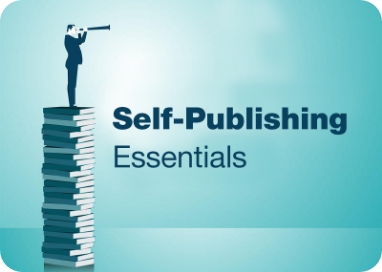Writing, publishing, and promoting a book isn’t just for those introspective creatives sitting cross-legged in your local coffee shop. Believe it or not, publishing a book isn’t only for writers. Done right, a self-published book promises prestige and credibility, and its far less intimidating than the process may seem.
If you’re reading this, it’s likely that you’re considering a self-published work to benefit either you or your organization. Consider these two simple reasons self-publishing is right for you and your personal brand:
You Decide What’s Relevant.
Self-publishing is one of the most indiscriminate practices in the corporate world, according to self-published author Carole Roman. Her views are expressed in an article on Forbes. It’s not just about your age, weight, or attractiveness, like Roman suggests. Self-publishing provides authors with access to a professional marketing platform unaffected by a publisher’s personal agenda.
Simply put, you decide what you want to promote. So, choose a topic to start a conversation, or one that you feel defines you, your brand, your company, etc.
Related: Zero In On Your Personal Brand By Asking These 4 Simple Questions
“Books sell because you promote them everywhere you possibly can, and the only thing that matters is their reception by the public. If you have something that ignites interest, it will spread and you will have success.”
Your Published Book Markets You – Not The Other Way Around.
While most book advice circulating the internet suggests strategies for marketing a book once it’s been published, Publishing Talk turns the page by asking its readers to consider using a book as a marketing tool. In an article by Alison Jones, she likens this strategy to the breakfast platter, citing an age-old marketing adage about providing consumers with the allure of a sizzle rather than the satisfaction of a sausage. “Give them the sausage,” Jones says, “because once they have the sausage, they will come back for the egg and bacon and fried bread.”
Instead of teasing the consumer and withholding the best of the product, (i.e., you) authors should be generous in their approach to establishing their authority. In other words, a book is an opportunity for a stranger, an investor, a funder, or even a conference director to know exactly who you are – don’t waste this opportunity by holding back your expertise.
Remember: placing a book in a consumer’s hand, instead of a business card, not only provides an unabridged resume or a motivational platform, it places you a step ahead of the competition.
Author Case Study – Sean Layne
Prior to publishing, actor-turned-educator Sean Layne (founder of Focus 5 Inc., a national arts education consulting company,) worked with material he’d developed about a unique classroom management strategy. Working in the field of arts integration for 25 years, he’s led residencies for students K-8, presented workshops for teachers, and has designed training seminars for teaching artists nationwide at The John F. Kennedy Center for the Performing Arts. But after countless trips to Kinkos, an exorbitant amount of money, and hundreds of copies later, he opted to invest in publishing his handbook. With well over 300% in return on his investment, his choice to use his handbook as a marketing tool has not only resulted in increased revenue from book sales but even more paid speaking engagements and workshops cross country as well.
In closing, whether you’re creating a relevant market or thinking of ways to market creatively, using a book as a marketing tool gives you an added layer of credibility as an expert in your field. And if that isn’t convincing enough, consider the following advice from Alison Jones: if you don’t write your book, eventually someone else will.

